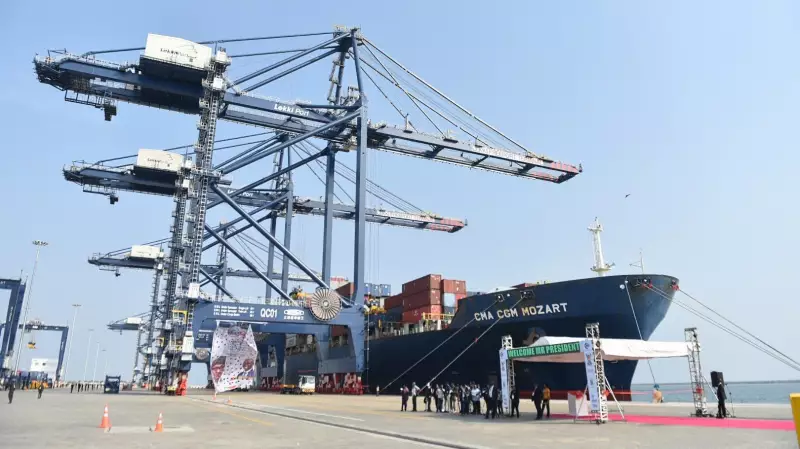
The Nigeria Ports Authority (NPA) has raised serious concerns about the alarming underutilization of the state-of-the-art Lekki Deep Sea Port, revealing that Nigerian businesses are failing to capitalize on what should be a transformative economic asset.
Despite being the deepest port in Africa with capacity to handle the largest container vessels globally, the facility remains significantly underused while older ports in Lagos struggle with chronic congestion. This paradox highlights a critical gap in Nigeria's trade logistics chain that could be costing the economy billions in lost opportunities.
World-Class Facility Meets Local Apathy
The Lekki Deep Sea Port represents one of Nigeria's most ambitious infrastructure projects in decades. Designed to handle modern mega-ships that cannot berth at traditional ports, the facility offers unprecedented advantages for importers and exporters alike.
Key benefits being overlooked include:
- Faster vessel turnaround times
- Reduced congestion charges
- Modern equipment ensuring cargo safety
- Direct access to major international shipping routes
Economic Implications for Nigerian Trade
Industry experts warn that continuing to underutilize this strategic asset could have severe consequences for Nigeria's competitiveness in global markets. While neighboring countries are investing heavily in port infrastructure, Nigeria's failure to maximize its own world-class facility represents a significant economic misstep.
The NPA emphasizes that increased usage of Lekki Port would not only decongest other Lagos ports but also reduce the overall cost of doing business for Nigerian enterprises engaged in international trade.
Call to Action for Nigerian Businesses
The authority is now launching an aggressive awareness campaign to educate stakeholders about the competitive advantages offered by the deep sea port. From manufacturing giants to agricultural exporters, all stand to benefit from transitioning their operations to the more efficient facility.
As one NPA official noted, "We have built the infrastructure for the future, but now we need Nigerian businesses to step up and use it. This isn't just about port operations—it's about national economic competitiveness."
The coming months will prove crucial as the NPA works to bridge the awareness gap and convince Nigerian businesses to embrace the modern maritime advantages sitting virtually idle at their doorstep.






